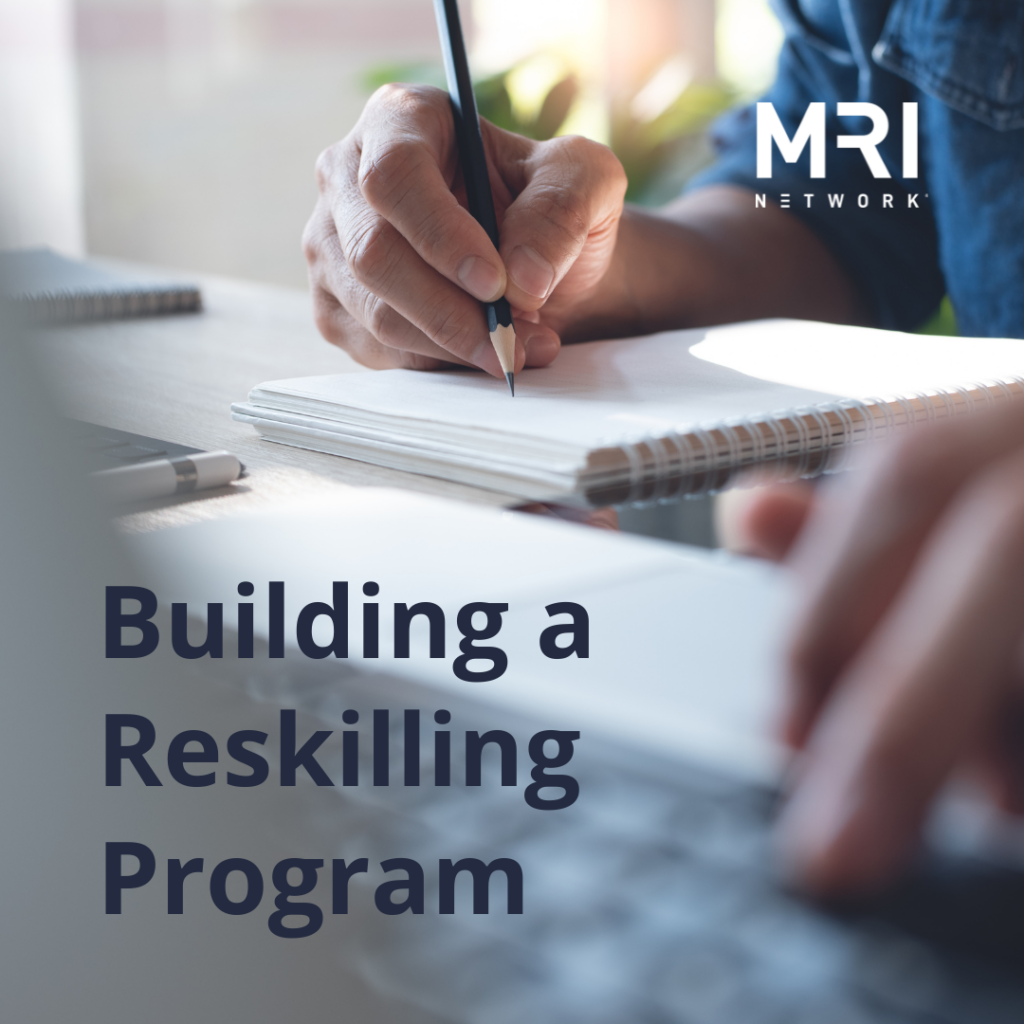Many employers today are facing major skills gaps – where the skills an organization needs don’t match up with the skills the workforce possesses. Recruiting efforts, of course, play a big role in helping organizations face these challenges, and learning and development leaders can step in by crafting scalable reskilling programs that ensure the viability of their talent into the future.
Reskilling is the act of training employees on new skills or job functions to help them transition into a different role within the organization. In some cases organizations undergoing a radical transformation may need to reskill entire segments of their workforce. Someone whose job is being outsourced might be reskilled into an entirely different department within the organization, especially if they’ve proven to be a team player and quick learner.
Which employees should be reskilled? Answering this question requires considering which job functions are likely to be disrupted in the coming years, whether by evolving technology or by changes in business strategy.
Depending on the goals of a program, reskilling can take anywhere from a few weeks to a year, but regardless of the program’s size, here are some best practices for designing reskilling initiatives:
- Uncover skills gaps. Conduct a skills gap analysis by working with leaders in the organization to identify necessary skills, and then measuring existing skill among employees.
- Consider your employees biggest challenges. A lack of time, for example, is one of the biggest barriers to reskilling so it’s crucial that the significance and relevance of learning is highlighted throughout the experience.
- Diversify training methods. eLearning, on-the-job training and social learning all have a place in reskilling initiatives. Be sure to give people a variety of options that meet diverse learning styles.
- Include soft skills. Reskilling programs that offer training on valuable soft skills teach learners how to navigate new norms with capabilities such as digital literacy and critical thinking.
- Measure results. No reskilling program is effective without the data to prove it. To measure results, consider follow-up focus groups for employees who have completed a program. And most importantly, measure their post-training-on-the-job performance by matching key performance indicators with the new skills.
As many organizations step up their efforts to explore what their talent is capable of, reskilling programs are an effective tool for unlocking untapped potential.

Connect with MRINetwork